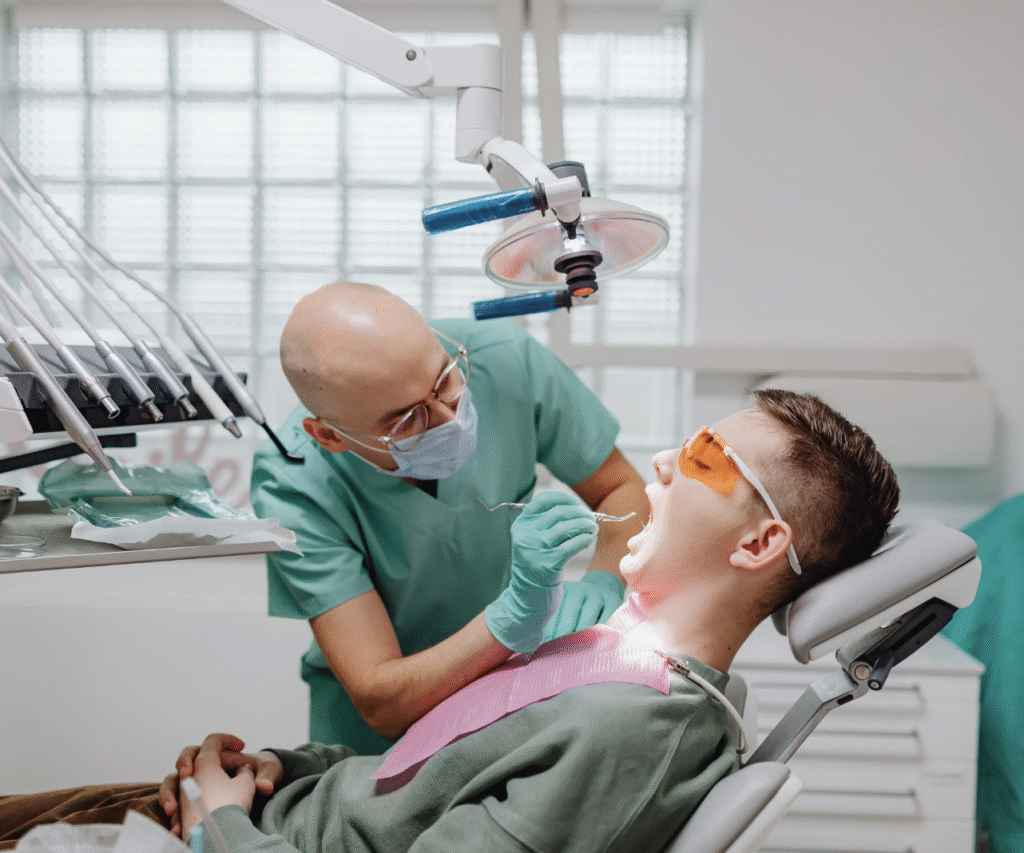
Recovering from oral surgery can feel daunting, but with the right oral surgery recovery tips, your healing process can be smooth and manageable. Whether you’ve undergone wisdom tooth extraction, dental implants, or corrective jaw surgery, following proper recovery practices is essential to ensure optimal healing and prevent complications. At West Michigan Oral & Maxillofacial Surgery, we understand that recovering comfortably is just as important as the surgery itself. Below are top oral surgery recovery tips to help you navigate the post-surgery journey with ease.
1. Follow Your Surgeon’s Instructions Carefully
Your oral surgeon will provide you with personalized post-operative instructions. These guidelines are specifically designed based on the procedure you had and your unique health condition. Common advice includes how to care for the surgery site, manage pain, and what to avoid during recovery. Be sure to follow these instructions to the letter.
For instance, if you’re recovering from wisdom tooth removal, you may be advised to avoid vigorous rinsing or spitting for at least 24 hours to prevent dislodging the blood clot. This simple step can go a long way in preventing a condition called dry socket, which can lead to discomfort and delayed healing.
2. Manage Pain and Swelling Effectively
One of the most important oral surgery recovery tips is learning how to manage pain and swelling. After surgery, it’s normal to experience some discomfort. Here are a few strategies to help you manage it effectively:
- Use Ice Packs: Apply ice to the outside of your face during the first 24 hours to reduce swelling. Apply for 15-20 minutes, then remove it for the same period before reapplying.
- Take Medications as Prescribed: Your surgeon may prescribe pain relievers and anti-inflammatory medications. Take them as directed to control discomfort. Over-the-counter options like ibuprofen can also help.
3. Keep Your Head Elevated
For the first few nights after surgery, keep your head elevated to minimize swelling and help prevent blood from pooling in the surgical area. Use pillows to prop your head up, or sleep in a reclining chair. This is one of the key oral surgery recovery tips for reducing pressure and promoting quicker healing.
4. Stick to Soft Foods
Your mouth will be sensitive after surgery, so it’s essential to avoid hard, crunchy, or chewy foods that could irritate the surgical site. Stick to soft foods like:
- Yogurt
- Applesauce
- Mashed potatoes
- Smoothies
- Scrambled eggs
- Lukewarm soup
Avoid foods that require excessive chewing or are too hot, as heat can increase swelling and disrupt the healing process. Gradually reintroduce harder foods as you heal.
5. Stay Hydrated—But Avoid Straws!
Hydration is crucial during recovery, but avoid using straws, as the suction can disturb the surgical site and dislodge blood clots. Instead, sip water or recommended fluids from a glass. This is a simple but critical oral surgery recovery tip to prevent complications like dry socket.
6. Avoid Smoking and Alcohol
Smoking reduces blood flow to the gums and can delay healing, while alcohol can interact with medications and irritate the surgical site. It’s best to avoid both for at least a week after surgery to ensure smooth recovery.
7. Keep the Surgical Site Clean
Good oral hygiene is important to prevent infection. After the first 24 hours, you can rinse your mouth with a saltwater solution (1/2 teaspoon of salt in 8 ounces of warm water) a few times a day, especially after meals. Avoid brushing directly over the surgical site for the first few days, but you can gently brush other areas of your mouth.
8. Rest and Limit Physical Activity
Rest is key to healing after oral surgery. For the first 48 to 72 hours, avoid strenuous activities, such as exercise or heavy lifting, to prevent excessive bleeding and promote recovery.
9. Pay Attention to Warning Signs
While minor discomfort is normal, certain symptoms may indicate a complication. Contact your surgeon if you experience:
- Excessive bleeding
- Severe pain that isn’t controlled by medication
- Persistent swelling or redness
- A foul taste in your mouth (indicating infection)
- Fever or chills
10. Plan for Follow-Up Care
Most oral surgeries require follow-up visits to ensure proper healing. Your surgeon will check for signs of infection, remove stitches if necessary, and advise on next steps for care.
11. Be Patient with the Healing Process
One of the most important oral surgery recovery tips is to be patient. Full healing can take several weeks, depending on the procedure and your individual health. Don’t rush back into normal activities until your surgeon clears you.
Your Road to Recovery
Recovering from oral surgery doesn’t have to be overwhelming. By following these oral surgery recovery tips, along with the personalized instructions from your surgeon, you can ensure a smooth and comfortable healing process. At West Michigan Oral & Maxillofacial Surgery, we are committed to providing expert care and compassionate support throughout your recovery journey. If you have any concerns during your recovery, don’t hesitate to reach out to our team.
Your well-being is our priority, and we’re here to help you heal every step of the way.
